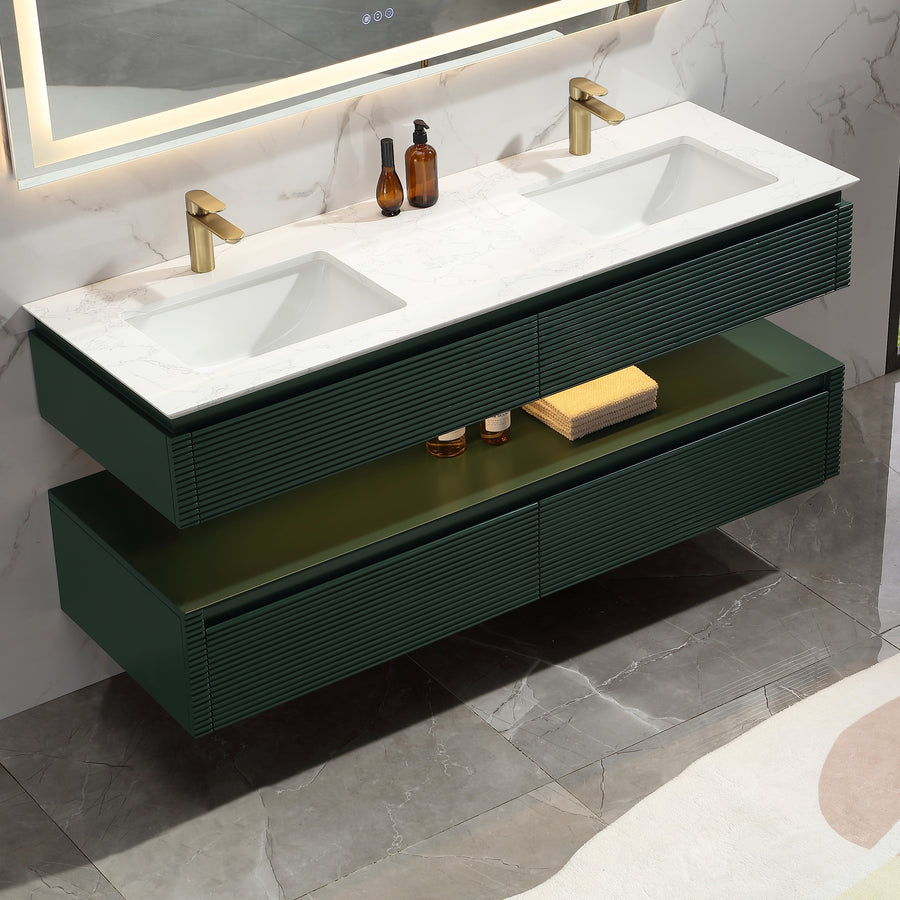Introduction
When it comes to bathroom vanity tops, durability is a top priority. After all, your vanity is exposed to daily wear and tear from water, cosmetics, and cleaning products. So, what is the most durable material for bathroom vanity tops? In this blog, we'll explore various countertop materials, their pros and cons, and help you make an informed choice for a long-lasting and stylish vanity top.

1. Granite
Pros:
- Exceptional durability: Granite is one of the hardest natural stones, resistant to scratches and chipping.
- Heat resistance: It can withstand hot hair styling tools without damage.
- Timeless aesthetics: Granite offers timeless beauty and comes in various colors and patterns.
Cons:
- Sealing required: Granite should be sealed periodically to prevent staining.
- Heavy weight: Due to its density, granite may require extra structural support.
2. Quartz
Pros:
- Durability: Engineered quartz is highly durable, resistant to scratches, stains, and impact.
- Low maintenance: It doesn't require sealing and is easy to clean.
- Wide color options: Quartz offers a vast array of color and pattern choices.
Cons:
- Not heat resistant: Avoid placing hot objects directly on quartz surfaces.
- Can be costly: High-quality quartz can be expensive.
3. Marble
Pros:
- Timeless elegance: Marble is revered for its classic, luxurious appearance.
- Sturdy: While softer than granite, it's still durable with proper care.
- Unique patterns: Each marble slab is unique, adding character to your vanity.
Cons:
- Requires maintenance: Marble is prone to staining and etching and requires regular sealing.
- Can be costly: Quality marble can come with a high price tag.
4. Solid Surface
Pros:
- Seamless appearance: Solid surface materials offer a smooth, integrated look with no visible seams.
- Repairable: Scratches and minor damages can often be sanded out.
- Variety of colors: Available in a range of colors and patterns.
Cons:
- Not as heat resistant as natural stone.
- Prone to scratches and cuts.
- Requires professional installation.
5. Porcelain
Pros:
- Extreme durability: Porcelain is resistant to scratches, stains, and heat.
- Low maintenance: Easy to clean and maintain.
- Thin and lightweight: Suitable for wall-mounted vanities.
Cons:
- Limited design options: Fewer patterns and colors compared to natural stone.
- May require professional installation.
Conclusion
The most durable material for your bathroom vanity top depends on your priorities and budget. Granite and quartz offer exceptional durability and a wide range of design options. Marble provides timeless elegance but requires more maintenance. Solid surface materials are practical and repairable, while porcelain combines durability with low maintenance. Consider your lifestyle and design preferences when choosing the ideal material for a vanity top that will withstand the test of time and daily use.









